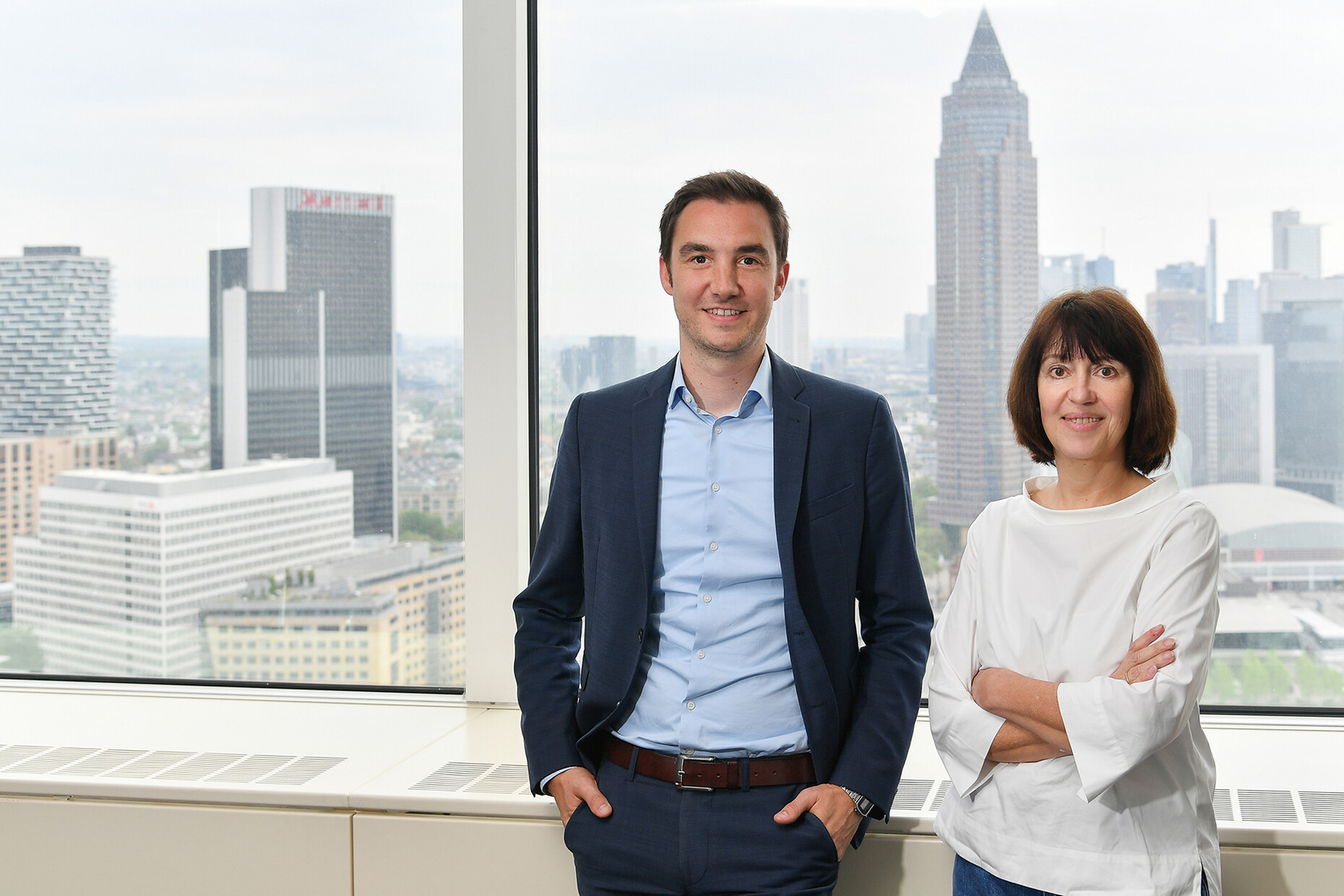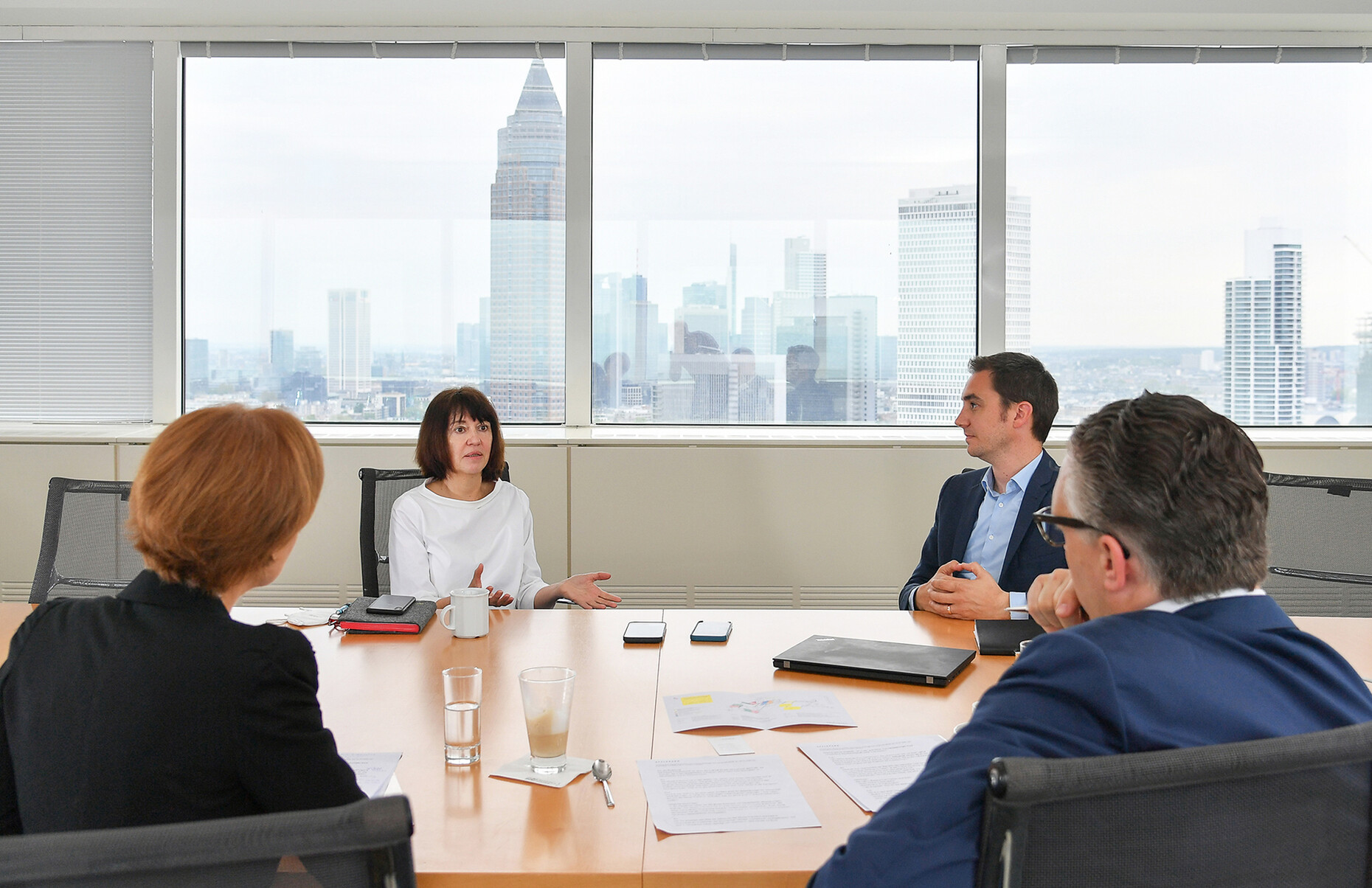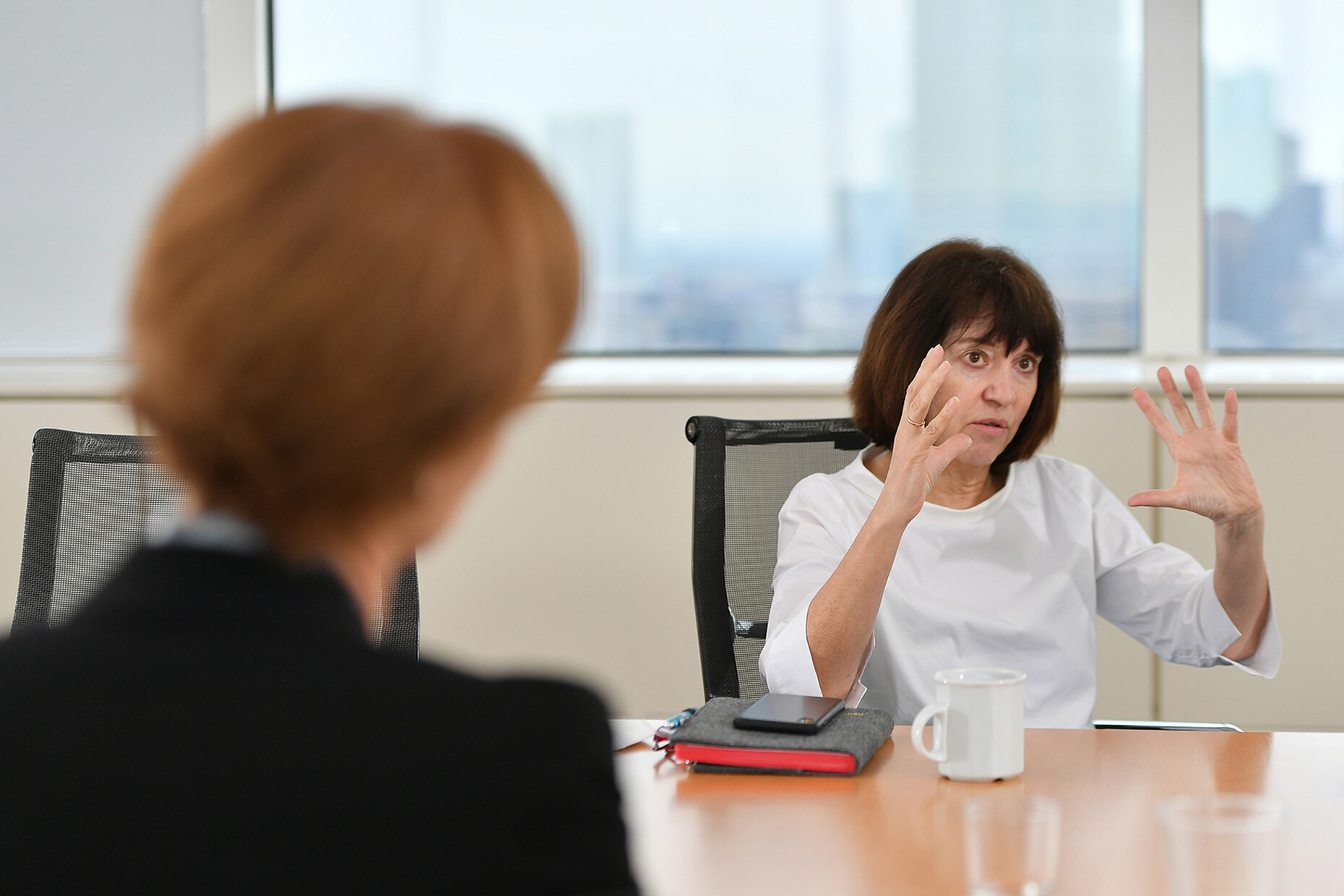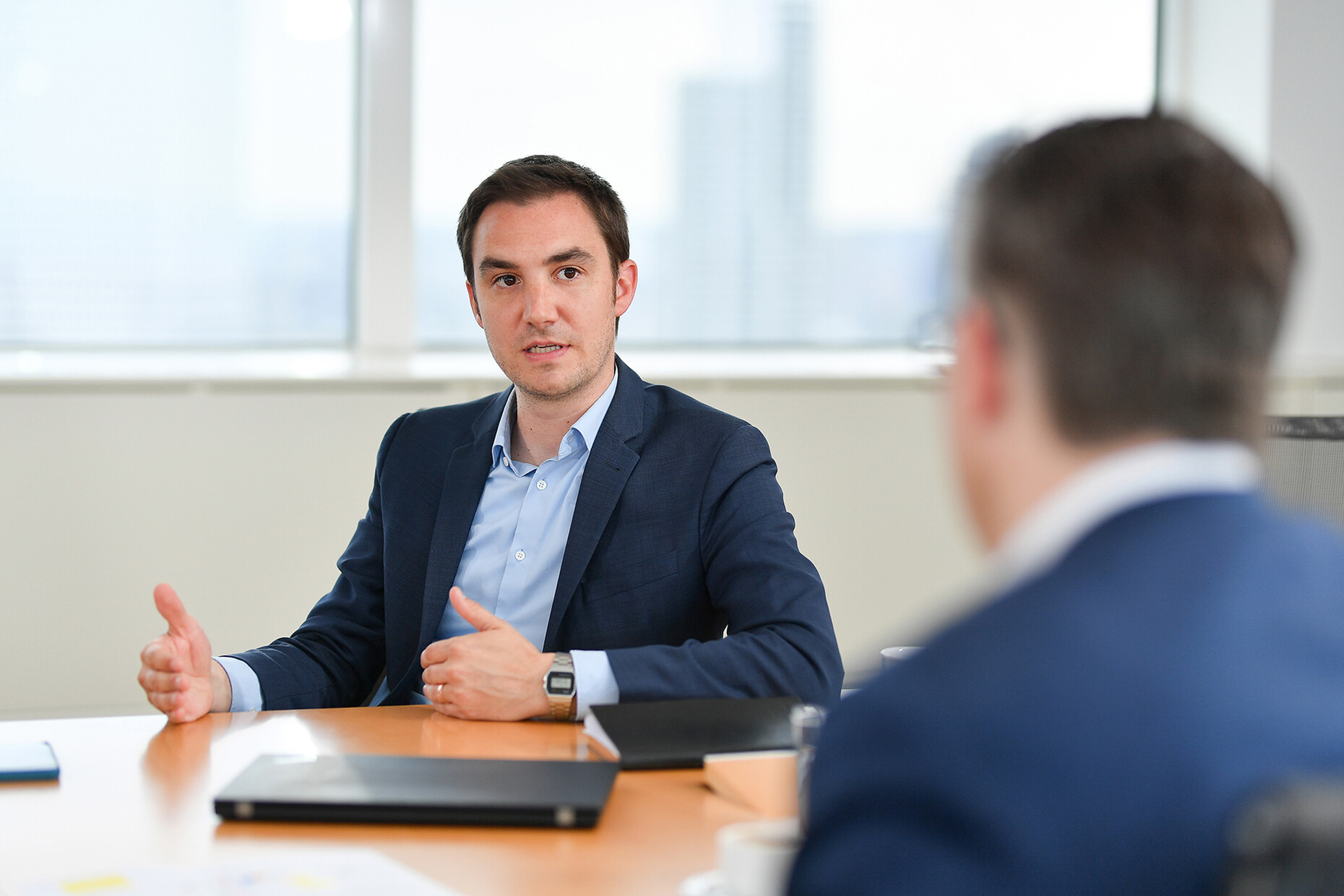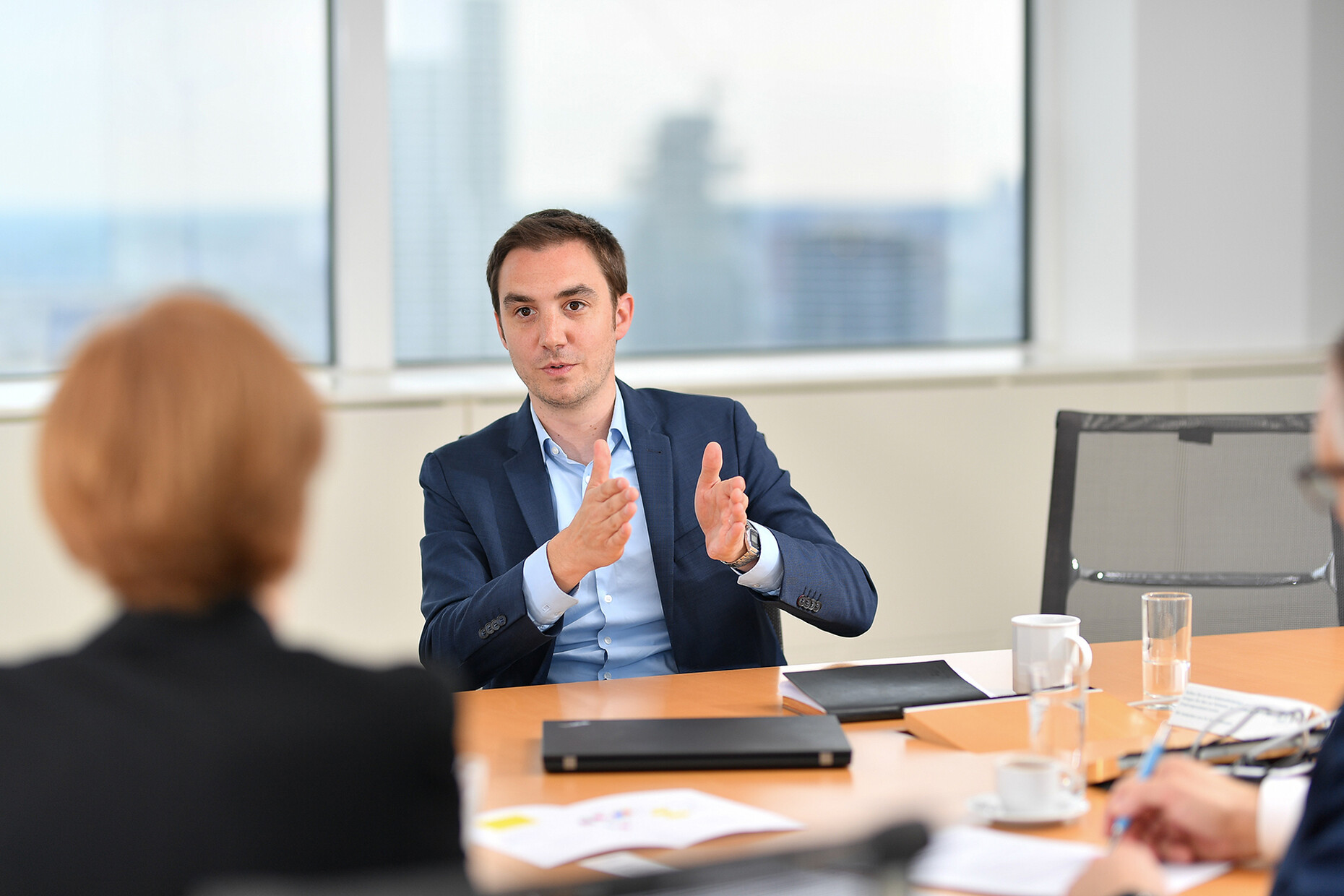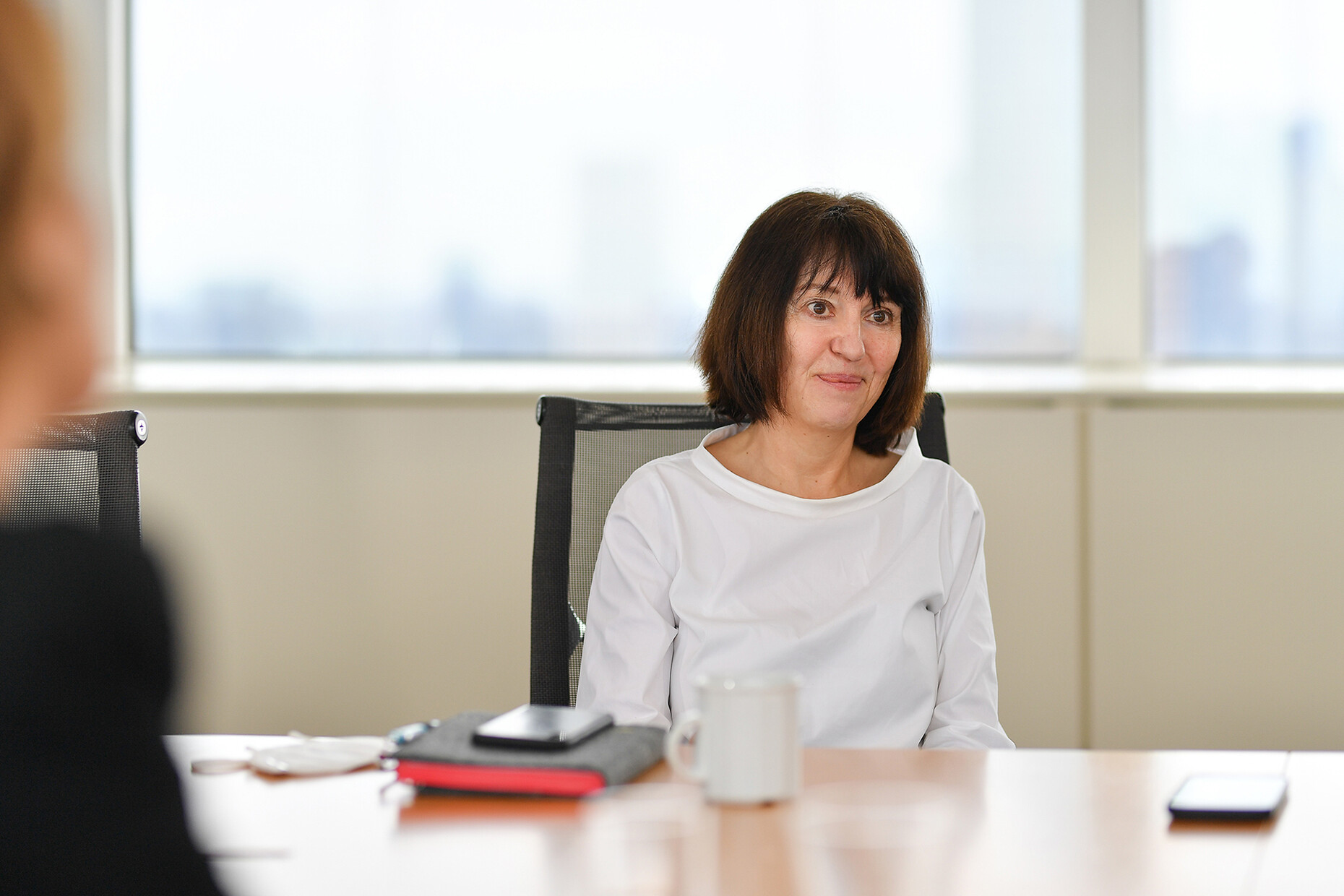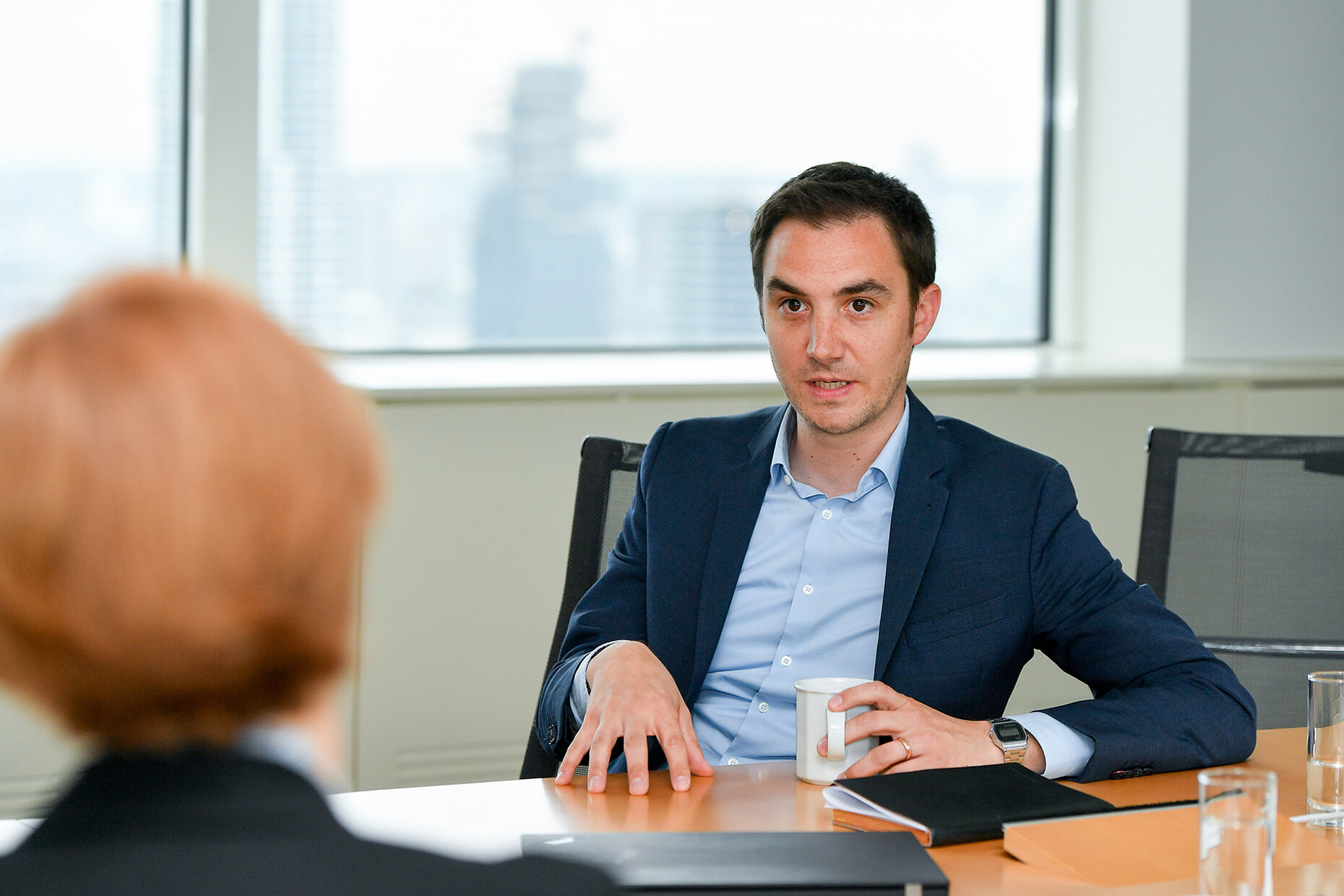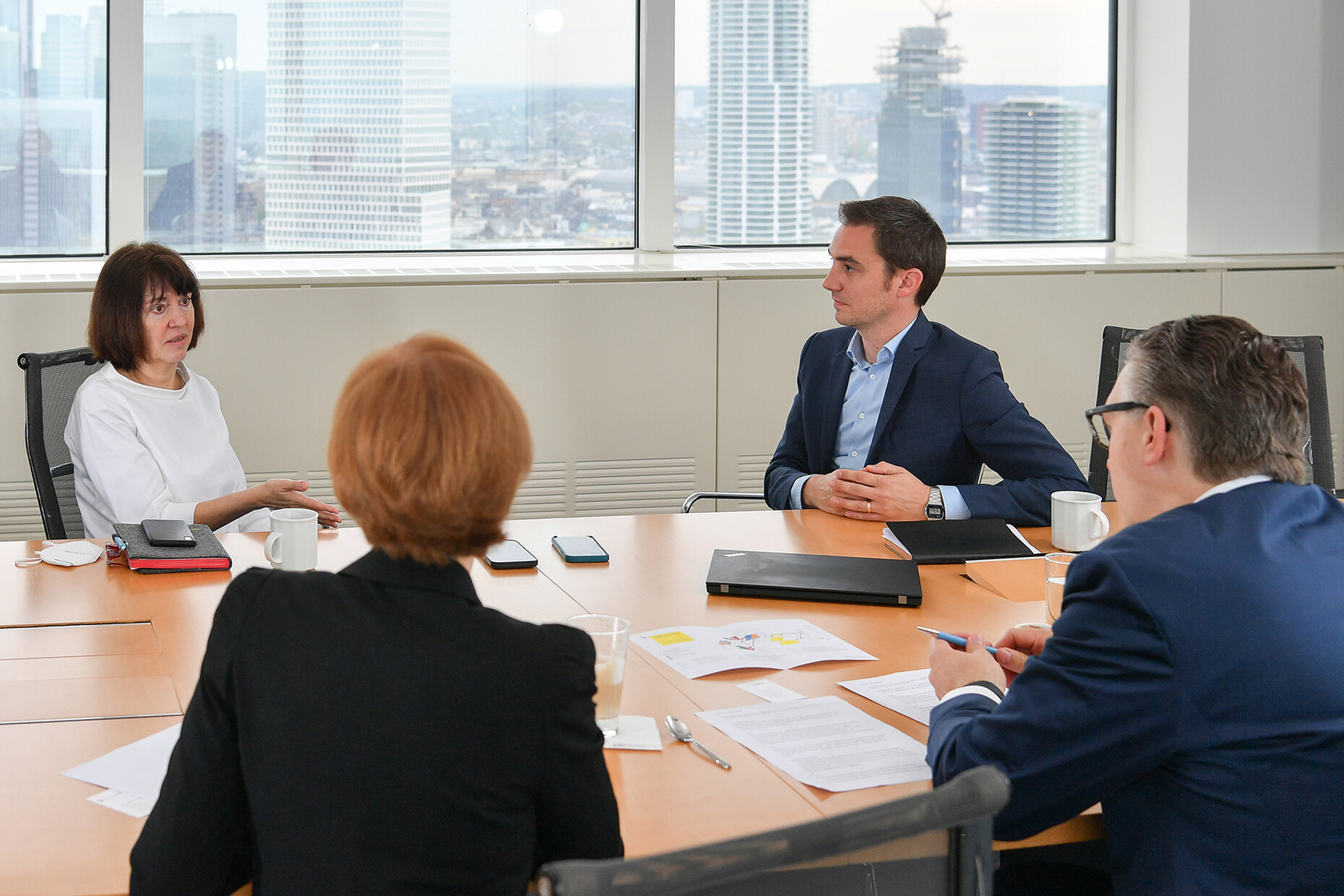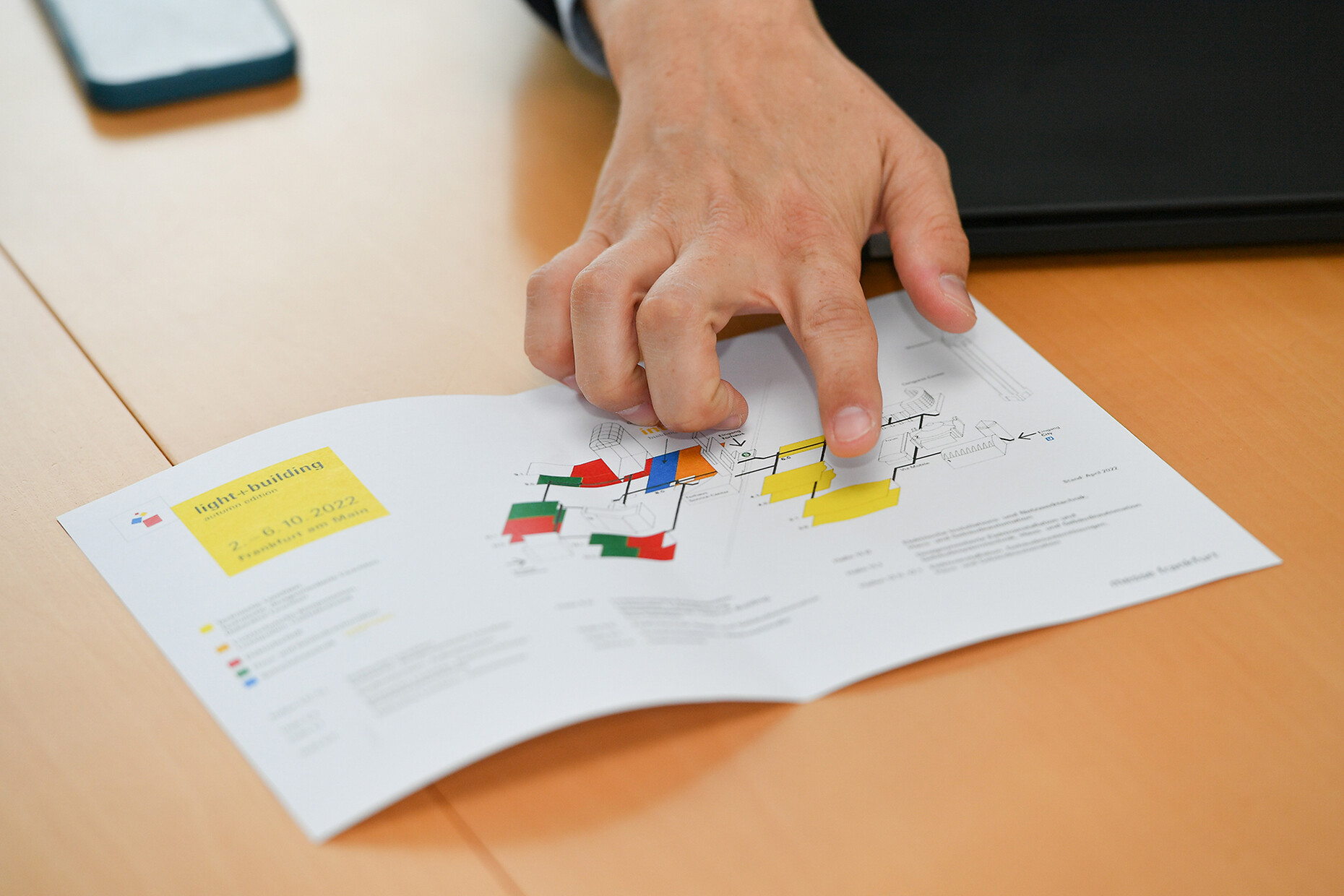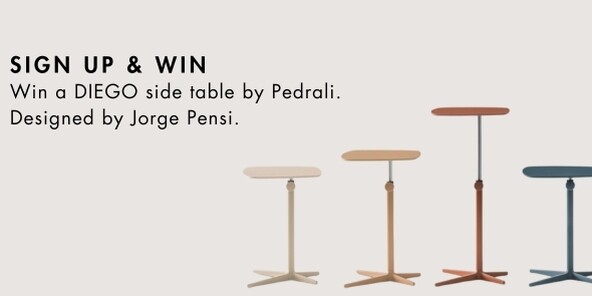What Are Your Plans for the Future?
Robert Volhard: Over the past four centuries, Messe Frankfurt has weathered a great many storms and is now the world’s biggest trade fair, congress and event organizer with its own physical hub. Even in these challenging times you have invested in expanding your portfolio and have introduced 23 new events worldwide. What conclusions have you now reached after two years of pandemic?
Iris Jeglitza-Moshage: The pandemic has hit Messe Frankfurt just as hard as it has the entire trade fair and event sector throughout the world. To begin with, we were not too badly affected because it was possible, at least in the early days, to fall back on our capital reserves. Furthermore, we fortunately boast fantastic shareholders who have provided us with support. Our solid base, our international network and our subsidiaries have also helped us to survive in these challenging times. After a bridging phase we are now in a “new start” phase. And what is also important is for all the adverse conditions, we have continued to invest strategically in the range we have on offer, among other things, in our international sales network and in completing Hall 5. We don’t know what will happen next but for the moment all lights are on green.
Johannes Möller: One of the points in our favor is bound to be that the actual events have shown us that our business model is still the right one. Through the pandemic we have learned what can be replaced digitally and what can’t – such as the great relevance of personal encounters. All the visitors to and exhibitors at the exhibitions to date – such as Prolight + Sound or IFFA – have confirmed that such encounters are irreplaceable.
Robert Volhard: Has Messe Frankfurt’s long tradition helped you to cope with the crisis? After all, Frankfurt/Main has been a trade-fair location for a good 800 years now.
Iris Jeglitza-Moshage: To tell the truth, no, because a company’s long tradition does not stand it in good stead during international crises such as the pandemic, crises in which the world undergoes fundamental change. This is why we have been thinking ahead, so as to define what we should be doing for the next 800 years.
Franziska von Schumann: From this perspective, the pandemic wasn’t just a magnifying glass, it was also a catalyst for necessary change. Such change usually includes hidden opportunities – what has it been that has changed Messe Frankfurt and what should you maintain in future?
Johannes Möller: We were brave enough to ask ourselves about what is absolutely essential to our events. Something absolutely essential is personal encounters between the supply and the demand ends. In this respect, it is key to rethink concepts and to analyze the additional benefits for us if we are to appreciate what will really get us somewhere. I believe that we have truly made progress there.
Iris Jeglitza-Moshage: The shift towards digitization is now irreversible as far as the trade fair format is concerned. The importance of social media has become crucial in the context of extending our range, for example. The exhibitors are also asking us in concrete terms what we have to offer them above and beyond the platform for their time and their investments. The target groups always need to be approached specifically and content to be relevant to their desired audiences. Over the coming years, digital communication will become an even more important concern for us.
Johannes Möller: On top of which long planning timeframes no longer exist. Trade fair appointments no longer structure people’s planning in the relevant sectors as much as they used to do before the pandemic. In some cases, people’s final orders for their trade fair stands only take place a few days before the actual exhibitions opens, the same applies to redeeming exhibition vouchers and tickets, things that it used to be possible to plan for firmly in advance now sometimes only take place a few days before the fair opens. The pandemic has necessarily made all processes more flexible, since the situation has changed repeatedly. Something that has helped us has been and still is our good partnerships with the specialist associations, with whom we consult on an ongoing basis. Before the pandemic, postponing or even canceling an exhibition was out of the question. In order to be able to take this step we have needed the backing of the exhibitors. We are extremely grateful for their support in this respect.
Iris Jeglitza-Moshage: For us, it was a positive experience to see that the exhibitions network does function and that we do support one another, if necessary. For changes to work well we need to tackle them together. Before we change a trade fair date it is, for example, very important to check whether it will conflict with our own guest events or will severely inconvenience our international colleagues.
Franziska von Schumann: From October 2-6, 2022, Messe Frankfurt is now organizing the Light + Building Autumn Edition. How is this different from its regular format?
Iris Jeglitza-Moshage: The Light + Building Autumn Edition is a compact special edition which, needless to say, cannot be compared to the regular Light + Building. However, feedback from the manufacturers was consistently such that they wanted the opportunity to present their products to the public and exchange opinions about them. Continuing to reject the idea of another fair and instead trekking from showroom to showroom is no longer an option for them. Moreover, with the lighting technology-related components, Hall 8 will be part of a Light + Building event for the first time. Many of the smaller companies also see this special edition as an opportunity to step out from under the shadows of the larger corporations. Hall 5 will also be available to the fair shortly – it is currently still in the process of being completed.
Johannes Möller: It was also a learning curve for us, too, to find out that the big players are in a position to use their own channels to generate the necessary attention for their product ranges. However, this is something that the “second row” can’t do, they require the marketplace that is the trade fair in order to generate the necessary coverage. Added to which, the more explanation a product needs and the longer the innovation cycle behind it actually is, the more important for it the exhibition and the exchange of information with other people become.
Iris Jeglitza-Moshage: The reason why a Light + Building at two-year intervals is important is because it structures the sector in a large number of ways. The tentative deadline for innovations is the fair and the relevant planning revolves around this. If we no longer have that date, then boundaries get blurred and things become arbitrary – the structure is missing.
Robert Volhard: According to current studies, buildings account for 40 percent of global carbon emissions. Does the thirst for innovation here also account for the fact that building technology is now so important to Messe Frankfurt?
Iris Jeglitza-Moshage: It really is the case that it is only the question of a building’s efficiency that makes it possible to do anything with it in the first place – for example, digitization inside the building, integrated energy management, energy storage or connectivity to other electrical applications such as e-mobility. Sustainability is simply a quite fundamental issue.
Johannes Möller: We announced the topics that are most important to us two whole years ago, namely a green deal, sustainability, electrification and digitization – and their importance was further underscored by the pandemic.
Iris Jeglitza-Moshage: I am sure that the industry and representatives of the various sectors are capable of expressing exactly what is needed and then coming up with creative solutions. We know the facts and the course the current government is taking – including vis-à-vis Russia’s war against Ukraine. However, you should not forget that big changes often take time. One example: There are currently some 42 million heating systems in Germany. Of that total, 23 million are more than 30 years old. Heating engineers manage to modernize or replace around 960,000 systems a year. That gives you some idea of how long it will take until all the old systems have been replaced. To my mind, the time scale politicians have set for realizing this goal is unrealistic.
Robert Volhard: Added to which you have the retrofitting that is necessary in the buildings – from replacing the radiators with surface heating systems through to insulation.
Iris Jeglitza-Moshage: These are big issues that need to be addressed and appropriate answers can also be found at the respective trade fairs or through Messe Frankfurt itself.
Robert Volhard: Iris, you have been working for Messe Frankfurt for over 23 years and have in various positions played a key part in advancing the technological trade fairs. How would you and your team like to further adapt the range of trade fairs in order to expand your market leadership in the current changing environment?
Iris Jeglitza-Moshage: Relevance is an important point which used to be a given and that we now need to get across again. In the past, there were also supporting programs, but basically many exhibitors were satisfied with merely displaying their products at the fair. Today, communication and acting as an intermediary are becoming increasingly important. It's about discussing things with one another, explaining and providing orientation so that people can form an opinion. The link between sector participants, industry and the world of politics is extremely important for Messe Frankfurt in order to bring theoretical ideas together. It is about the “how” and no longer about the “whether”. Only if the common direction is clear does industry also have the opportunity to offer the corresponding solutions.
Johannes Möller: An open, productive exchange of opinions does not work anonymously using digital comment fields. You need the setting of the trade fair.
Iris Jeglitza-Moshage: Another important point is the recruitment of personnel for industry, i.e., promoting the training of skilled staff. Messe Frankfurt has since winter semester 2018-9 therefore been sponsoring two Bachelor's degree courses at the Frankfurt University of Applied Sciences (UAS), namely “Real Estate” and “Facility Management and Real Estate and Integral Building Technology”.
Robert Volhard: Does Messe Frankfurt also support the trades?
Johannes Möller: Yes, for example, we help trade and craft businesses to attract young people. To do this, it is important to address young people in a way that is appropriate for the target group - for example, when they are faced with the decision of whether they want to start an apprenticeship or go to university. In Hall 9.1, parallel to the trade fair, there will be a workshop circuit where pupils and trainees can experience and try out craft processes by means of seminars. This branding takes place at Light + Building.
Iris Jeglitza-Moshage: However, there is still a lot of room for improvement in this area, also for the trades firms themselves, for example with regard to diversity.
Franziska von Schumann: There are already many digital options for communication at the fair that appeal to younger target groups in particular - for example, saving content using QR codes. Do you have similar formats planned for the Autumn Edition?
Johannes Möller: Exactly, among other things we are not streaming the lectures live, but recording them so that they can be viewed afterwards at any time. The keynote lectures are very important for the industry, so it would be a pity if only a handful of people got to experience them. Often, the vibrant atmosphere of the trade fair does not offer the opportunity to delve deeper into a complex topic such as additive manufacturing technologies. The content has always been there, but for a long time the reach was very limited. The digital offerings are now helping to change that.
Robert Volhard: What other lessons did you learn?
Johannes Möller: One component is certainly also to check whether we are communicating our offers adequately - such as the search function in the Light + Building database. For a long time, we only called this “exhibitor search”. Basically, however, since the start you have been able to call up a lot of background information on the companies and products in addition to the basic information such as the stand number. We have now expanded and renamed the tool - the “Contactor” now offers exhibitors a profile that they can use extensively, including a virtual counter to receive visitors digitally in addition to their visit to the fair.
Iris Jeglitza-Moshage: In addition to the product level, it is also our task to make the different focal points of Light + Building more visible, such as safety technology or building services engineering.
Franziska von Schumann: I would like to move on to the issue of sustainability. The concept of the fair has been criticized for consuming an unnecessary amount of resources. To what extent is Messe Frankfurt working on making the business model more sustainable?
Iris Jeglitza-Moshage: The issue of sustainability is very important to Messe Frankfurt and management is working hard to implement the necessary steps. We cannot go into too much depth at the moment, as many measures have not yet been finalized. However, for ten years now Messe Frankfurt has been a member of the UN Global Compact, the world's largest and most important initiative for sustainable and responsible corporate governance. This includes sustainability on the one hand, and other important topics such as fair working conditions or diversity on the other. In addition, despite the high financial outlay, Messe Frankfurt continues to offer our guests free travel on local public transport with the trade fair ticket.
Johannes Möller: We are also pleased to see that exhibitors are responding to the issue of sustainability. For example, stand structures are being produced in a more environmentally friendly way, as there are more modular solutions that can be recycled. The change in this sector is all the more challenging because exhibition stand construction typically involves many subcontractors and suffered harsh losses in the wake of the pandemic.
Franziska von Schumann: What advice would you give to people planning to visit Light + Building Autumn Edition?
Iris Jeglitza-Moshage: To prepare for their trade fair visit by using what is on offer for the Light + Building Autumn Edition - but also to plan time to let themselves drift, to find products and services that they were not looking for and to enjoy the fact that a personal exchange is possible again at the trade fair.
Light + Building Autumn Edition 2022
October 2 to 6, 2022
Messe Frankfurt Exhibition GmbH
Ludwig-Erhard-Anlage 1
60327 Frankfurt/Main
